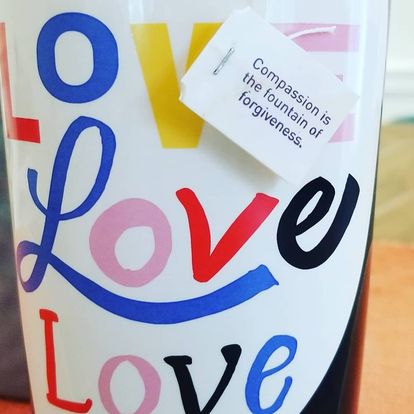The Gifts of Depression
by Ashley Vaden, LMFT
“You desire to know the art of living, my friend? It is contained in one phrase: make use of suffering.” These words, attributed to Henri-Frederic Amiel, hold a quiet truth that many of us resist. Depression, in all its weight and misery, feels like the enemy—something to escape, numb, or conquer. But what if depression were not an adversary, but a guide? An indicator or your next rite of passage?
Carl Jung reminds us that depression is not necessarily pathological. Often, it signals the need for profound change, a harbinger of transformation. Depression, when viewed through this lens, becomes less a punishment and more a messenger, carrying within it the potential for psychological renewal and creativity.
To “depress” means to “press down,” to force us into the depths of our own psyche. And though this descent is painful, is it purposeful. Depression pulls our energy and focus inward, away from the external world and distractions that we so often fixate upon. It demands that we stop looking outward for meaning and instead confront what lies within—the forgotten, the suppressed, the unconscious treasure of our own being.
James Hollis writes “It takes great courage to value depression, to respect it, not to try and medicate it away or distract ourselves from its misery. Down there is potential meaning split off from consciousness, but alive, dynamic.” Beneath the heaviness, beneath the despair, depression points us to what is hidden: our instincts, passions, creative drives, and the fragments of our true selves. Depression serves as an opportunity to sift through our value system and determine what matters most. What we often experience as unbearable heaviness is, paradoxically, the weight of something alive struggling to emerge.
This descent into the depths is not a journey to be resisted. What we resist, after all, persists. The greatest treasures lie at the deepest places. Depression teaches us to dig, sift, and to descent without resistance, and unearth the psychological gold buried beneath. Yet, this does not mean identifying with depression or becoming lost within it. There is power in maintaining objectivity—in stepping back and observing it, not as something we are but as a part of us with something to teach.
In modern society, depression is heavily stigmatized, often seen as a personal failing or a condition to be cured quickly and quietly. We have little tolerance for its presence and even less space for expression. Thomas Moore in Care of the Soul challenges this perspective by suggesting that we reframe our relationship with depression entirely. Rather than pushing it to the margins of our lives, Moore argues that we create intentional spaces for depression—quiet, solitary sanctuaries within our communities. Imagine office buildings with dedicated rooms for solitude, , where people can retreat to sit with their feelings without shame or interruption. By making room for depression, not as an inconvenience but as a natural and meaningful part of life, we begin to strip away the stigma and embrace its potential to transform and renew us.
When we allow ourselves to sit with depression, to listen without judgement, it reveals its purpose: to elicit dynamic change, to force a reorientation of the soul. It reminds us of what we have neglected within ourselves. Depression is not the end; it is the beginning of a renewal, a signpost pointing toward transformation and meaning.
So, when depression visits, as unwelcome as it may feel, consider this: what lies beneath its weight? What treasure is hidden in the depth of it urges you to explore? It is in the descent, in the courage to feel and observe, that we begin to rise.

After acquiring my Master’s Degree at the University of Rochester, I returned to my home state of Kentucky. For the past 5 years, I have been serving adults, teens, and couples at The Mindfulness Center. I help clients heal and grow through means of self compassion and self-derived skills. I have felt especially drawn to attachment theory and Internal Family Systems, as I have found them to be the most empowering and effective modalities for complex trauma and relational distress. I hope to help people make use of their suffering and find purpose and meaning through life’s struggles.
To schedule an appointment with me click here.





